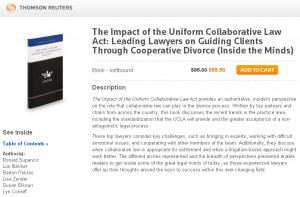I recently attended an immersion course in California at UCLA put on by the Center for Resolution Advocacy. The three day course left my head spinning as I listened to Ph.D. after Ph.D. present the latest theories on neuroscience, emotion, human interactions, trauma, and many other resolution related topics. One of the key takeaways for me came from a presentation by Jeremy Hunter, Ph.D. His presentation built on the work of business philosopher Peter Drucker, using Drucker’s basic principles as a lens for examining knowledge worker productivity (as opposed to manual worker productivity) and self-management. The argument was that through cultivating mindfulness, we are able to increase our awareness of our actions, emotions, and beliefs. Awareness gives us choice, which equals a greater conscious influence over subsequent actions.
As Hunter discussed how maladaptive behaviors become hard wired into our brains and become a “default” programmed reaction of the basal ganglia, I couldn’t help but think about many of the clients who have had difficult divorces. They were in a pattern of mutually destructive behavior—these couples had learned just how to push each other’s buttons and were “stuck” in a cyclical pattern of response, ever fueling the fire of fighting and counter-productive disagreements.
The good news is, Hunter and many others argue that once we are aware of these stagnant responses, we can actually engage “systematic abandonment” of the maladaptive behaviors and re-wire our brains by moving the problems before us out of the basal ganglia and back into the forefront of the brain for consideration, giving fresh perspective and creating opportunity for more productive efforts going forward.
This hope for moving forward in a more positive way is realized through the Collaborative Process more than any other method for divorce. This is the role of the Coaches—to help couples move out of these self-taught “ruts” and overwrite them with new means of communication. The tools these professionals can give have an immeasurable effect on a couple’s ability to move forward not only as effective co-parents, but with a greater chance of becoming whole again and emerging from the shattering experience of a divorce as stronger, more communicative, and more effective individuals.





 Lori D. Becker is featured on Super Lawyers.
Lori D. Becker is featured on Super Lawyers.